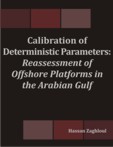Add abstract
Want to add your dissertation abstract to this database? It only takes a minute!
Search abstract
Search for abstracts by subject, author or institution
Want to add your dissertation abstract to this database? It only takes a minute!
Search for abstracts by subject, author or institution
Factors influencing bus network design
by Zhen Xiang Loh
| Institution: | MIT |
|---|---|
| Department: | Department of Civil and Environmental Engineering |
| Degree: | |
| Year: | 2014 |
| Keywords: | Civil and Environmental Engineering. |
| Posted: | |
| Record ID: | 2024856 |
| Full text PDF: | http://hdl.handle.net/1721.1/88394 |
Bus network design and frequency setting, the highest level subproblems in the bus planning process, have long-term impacts on bus network performance. Improving network performance not only improves the attractiveness of public transport and thus ridership, but cost-effectiveness as well because public transport experiences increasing returns to scale. In practice, solution approaches rely heavily on the experience and intuition of human planners, possibly guided by solutions obtained through optimization techniques. Optimization is not applied in isolation due to problem complexity and computational intractability, which makes exact solutions for areas larger than a small neighbourhood difficult to compute. In this thesis, we first review some recent proposals to solve the bus network design and frequency setting problem using optimization methods. We solve a simplified version of the problem on a small network to demonstrate the feasibility of a decomposition approach in which we generate routes algorithmically and frequencies using optimization. Next, we propose a more sophisticated methodology to examine the impacts on network performance of various design criteria, such as route length and number of routes. We describe our implementation of a parameterized route generation algorithm, generate a variety of route networks, and then perform trip assignments using origin-destination data from a major city. We then determine the performance of these networks by comparing total travel time, waiting time, and number of transfers required over different networks and on a benchmark (real-world) network. We found that average route length and total network length are the most important criteria for determining network performance. We also found that in the generated networks, reducing total travel time came at the cost of increasing the average number of transfers per trip.
Want to add your dissertation abstract to this database? It only takes a minute!
Search for abstracts by subject, author or institution


|
Predicting the Admission Decision of a Participant...
|

|
Development of New Models Using Machine Learning M...
|

|
The Adaptation Process of a Resettled Community to...
A Study of the Nubian Experience in Egypt
|

|
Development of an Artificial Intelligence System f...
|

|
Theoretical and Experimental Analysis of Dissipati...
|

|
Optical Fiber Sensors for Residential Environments
|

|
Calibration of Deterministic Parameters
Reassessment of Offshore Platforms in the Arabian ...
|

|
How Passion Relates to Performance
A Study of Consultant Civil Engineers
|